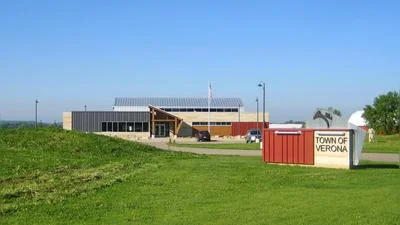Jennifer Mnookin Chancellor | Official website
Jennifer Mnookin Chancellor | Official website
A research initiative at the University of Wisconsin–Madison, led by Betül Kaçar, associate professor of bacteriology, aims to investigate the origins and early evolution of life on Earth. The project titled “Past as Prelude: Preparing for an Uncertain Future Shaped by Nitrogen” has secured a $1.3 million grant from the W.M. Keck Foundation, with additional funds from UW–Madison.
Kaçar's team includes Brian Pfleger and Jean-Michel Ané, professors in chemical and biological engineering and plant and agroecosystem sciences respectively. They will collaborate with Martin Steinegger from Seoul National University for expertise in large-scale sequence data analysis.
The focus is on understanding nitrogenase, an enzyme crucial for converting atmospheric nitrogen into a biologically usable form. "Traditional approaches for reconstructing the history of life depend on the study of geological remains that offer a woefully incomplete picture of ancient life due to their rarity and degree of degradation," says Kaçar. She highlights nitrogenase as a "unique window" into Earth's history.
The project involves using evolutionary models and high-throughput methods to resurrect extinct enzyme sequences. This innovative approach seeks to map these enzymes' functions against historical global events such as glaciations and shifts in CO2 levels.
Kaçar describes their methodology as transformative, combining protein evolution, microbiology, and paleobiology—a sub-discipline not typically covered by traditional funding programs but supported by the Keck Foundation.
The W.M. Keck Foundation, based in Los Angeles since 1954, supports pioneering efforts primarily in medical research, science, engineering, undergraduate education, and community initiatives in Southern California.






 Alerts Sign-up
Alerts Sign-up